I started watching the WNBA around three years ago, and it’s quickly become one of my favorite leagues to follow. Not only do bookmakers suck at setting odds for it—consistently making it my best return on props—it’s just such a different style of play. It’s like watching the pre-2010s NBA. Less positionless basketball, less iso-to-three spam, less soft calls. It’s pure.
But in all of the time that I’ve followed the W, I’ve noticed an amusing trend. That is, sports commentators, without failure, have the shittiest takes on the league. Even pundits who are generally well-tempered and judicious, that have earned my respect in other sports, just don’t seem to know how to deal with women’s basketball. Maybe it’s rigidity in the way they analyze the game. Maybe it’s a lack of data. Maybe it’s sexism. It might be a mix of all of these things. Whatever it is, they suck at talking about it.
*****
The latest, most notable rendition of this has come with the conflict between Chicago Sky forward Angel Reese and Indiana Fever guard Caitlin Clark. For those of you who are unfamiliar, here’s a brief recap.
Two years ago, when both were in college, they faced off in the 2023 NCAA women’s national championship. Reese’s LSU defeated Clark’s Iowa handily. But towards the end of the fourth quarter, Reese taunted Clark twice. She faced limited criticism for the action, because women’s basketball was not nearly as popular just then as it is today.
This March Madness though, Clark became somewhat of a golden goose for the sport. She started shattering every NCAA record in the book, and became a media phenomenon. Other people actually started giving a shit about the women’s half of the tournament, probably because Clark was really fun to watch. Watching her is like watching a Reggie Miller mixtape. The entire month, SportsCenter and Bleacher Report were dominated by clips of her chucking up shots that make you think, no way, and sinking them. As someone who had followed her in the previous year, it was clear she’d developed prodigiously. Clark’s Iowa then defeated Reese’s LSU in the semifinal game as well.
It also translated into views. The women’s 2024 collegiate title game brought in nearly 24 million viewers—nearly double that of any of the most recent NBA Finals or World Series games, and mind you, those are centuries-old pro leagues. It cleared well over double the men’s collegiate title game. Guys around me, who had never watched a women’s game, were all tuning in. Months later, Clark was selected first in the 2024 WNBA Draft, and Reese was selected seventh. Ticket prices skyrocketed—getting lower-level seats at Los Angeles Sparks games when I first started shopping for them four years ago would run you no more than $10. Compare that to today, where they sit well over $300.
All that said, women’s basketball is now at its first major climacteric. It’s the first time sports fans—male and female alike—are tuning in by the millions. And commentators are chiming in like never before.
The latest in this flurry of dogshit commentary is rooted in the now-professional rivalry of Clark and Reese. Yesterday, in the Indiana-Chicago game, Reese went up to block Clark, and hit her pretty hard in the head. To me, it didn’t look intentional (although I may be biased as someone who bet the moneyline on Chicago), but others disagree. Whatever the intention was, the referees called a flagrant foul on Reese.
This came on the tails of a pretty controversial interview Reese gave the other week. In that interview, she said:
“Yeah, the reason why we’re watching women’s basketball is not just because of [Caitlin Clark]. It’s because of me, too. And I want you to realize that. Like, it’s just not ’cause of one person. A lot of us have done so much for this game.”
All this in mind and summarily, pundits have been quick to write off Reese’s words/actions as jealous. Skip Bayless, founder of Undisputed (one of the world’s most widely-viewed sports talk shows), had this to say about Reese:
“She’s the instigator… Her postgame comes off as bitter and jealous… It just comes off as so negative… She's playing WWE wrestling, not basketball.”
Stephen A. Smith, who’s probably America’s most famous sports commentator, had this to say in his segment titled “My thoughts on Angel Reese”:
“Since Caitlin Clark is the one here now, ride the wave. A rising tide raises all boats”.
NBA hall-of-famer and TNT basketball contributor Charles Barkley contended:
“[Reese] should be thanking her. […] Y’all should be thanking that girl for getting y’all ass private charters, all the money and visibility she brings into the WNBA.”
Conservative substacker Steve Sailer, who I think is a D1 dipshit, argued:
“Clark’s shot was already two feet past Reese’s hand when Reese hammered Clark in the head with her arm, knocking her to the floor. Reese was whistled for ‘unnecessary roughness’ but not for ‘excessive roughness.’
If the races were reversed, this of course would be a huge on-going story, dwarfing, say, even the Central Park Karen of 2020.”
Content creator Greg Foreman even released a video titled “Angel Reese LASHES OUT In Victimhood After BRUTALLY CLOTHESLINING Caitlin Clark During Loss!”, to his 800,000+ subscribers. Fox News jumped on her with the headline “Angel Reese defends hitting Caitlin Clark in head, resulting in flagrant foul”. They followed it up hours later with “Bitter basketball rivalry takes fresh twist as prodigy whacked in the head by nemesis".
The list goes on, but the principle remains: the Angel Reese hate train is here, and it’s full steam ahead. The moderates are trashing on her for being provocative. The racist spinmasters are attacking her. Very few people are defending her, and this is wrong.
I want to start out by pointing out that Reese is nothing short of amazing as a player, and her style is exactly what the league needs right now.
The W has, for so long, been structured around ‘small ball’—a playstyle that sacrifices the low post in favor of speed and distance scoring. In essence, less physicality and close-range scoring, and more shooting. The reason for that? My theory is that the infrastructure that supports young girls’ basketball is weak to the point where this is an inevitable outcome. Back in my travel basketball days, there just weren’t many opportunities for girls, so the ones that took it seriously would have to play in boys’ leagues. Because of the natural height difference between genders, girls were then usually forced to play the guard position, which emphasizes speed and distance scoring.
As a result, as these girls became women and progressed further into their careers, their training consisted primarily of ‘small ball’ skills. But when they got to college, and the competition finally became composed of all women, many of them had to convert to the forward position (which is less ‘small ball’ and more physical). The women on my teams that went on to play Division I as forwards thus play less as true forwards and more as shooting guards listed as forwards. The Sports Analytics Group at Berkeley did a great breakdown of this—proving that forwards’ efficiency in the WNBA is significantly more correlated to mid-range shooting than in the NBA, where it’s tied to closer-range play.
Angel Reese is the rare exception. If you’ve ever watched her, you’d know that she’s an incredible post player. In a league of forwards who play more timidly around the basket, she crashes and bashes. Ironically, it’s like watching Charles Barkley, one of her fiercest critics, play. She plays as if she’s half a foot taller than she actually is, and it’s awesome.
It’s a foregone conclusion to contend that this is great for the league’s development. For starters, balanced basketball is important. Deep threats like Clark are great to make highlights reels out of, but a full game with weak/minimal post play isn’t optimal to watch. In a league oversaturated with forwards that play either like a third guard or a stretch four, she’s a young talent changing the game.
It also helps to patch up one of the league’s biggest holes—that is, the lack of action at the rim. A historically-overdone criticism of the league is its lack of dunks. That’s not to say it doesn’t have dunks, but there have only been six players in history to do it in game, and only two are active today. Infantilizing and condescending proposals have been made to change this, like Shaquille O’Neal suggesting they lower the rim. But the better way to approach it is by expanding the draw of ‘big ball’ players. If two can do it right now, and we can grow women’s basketball to draw, say, 10x the human capital, we’d have 20 people dunking (almost two per team). The only way we actually expand this draw is by emphasizing the importance of ‘big ball’ skills and advertising ‘big ball’ players from the top-down. In essence—put players like Angel Reese on a pedestal and glorify them, so volleyball players play basketball instead (and the league’s human capital increases).
And I guess that’s where the first part of this criticism wraps up. Commentators are not giving Reese her flowers for her contributions to the sport itself. But maybe Reese is ahead of her time. Monta Ellis, one of my favorite players to watch growing up, never got the love he deserved for being Stephen Curry before Stephen Curry. Channing Frye, a deadeye center before deadeye centers were venerated, never got his flowers either. Sports commentators can get it wrong about their analysis of the game. They can be behind. They do it about men too. And maybe that’s fine.
But what’s significantly less fine? There is a more metaphorical “small ball” at play here. That is—beyond the criticism of her game, commentators seem hell-bent on minimizing Reese’s personality and outward expression. C.F. all of the aforementioned pull-quotes. Behind the veneer of bad analysis, or even the lack of attention to her play, is an excess of criticism that I’ve never seen before. It is commentary underlined by the sinister, implicit demand that Reese be quiet and just be thankful that the W is expanding at the rate it is.
I want to start by noting the glaring double standard here. This would never happen to a male basketball star. There has never been a time in NBA history where sports commentators en masse demand that a star player be less vocal, with the justification that their personality is too big to the point where it threatens the league’s growth. Nor has there been a time that a player has been told to sideline their opinions because a bigger star is bringing in more money. Euphemism after euphemism, they are all masked demands for more silence. It is no better than a Laura Ingraham-style “shut up and dribble”, but on every front.
You would never see, for example, Skip Bayless telling Kyrie Irving (the NBA’s conspiracy-theorist-in-chief) that he’s an instigator, and that he should be quiet for speaking his mind. In fact, earlier this month, Bayless called him the “most gifted I've ever seen”, and has previously lamented “the way [Kyrie] was treated”. Kyrie has notably ditched his team for half a season over vaccines, got into heaps of trouble after promoting the anti-semitic ‘Hebrews to Negroes: Wake Up Black America’ movie, publicly aired out younger teammates after losses, and all-the-while insisted the Earth was flat. But Reese is the one who’s too inflammatory, for saying that women’s basketball is about more than just one person? For playing with fiery passion? She’s the “instigator”?
Nor would you ever see Stephen A. or Charles Barkley telling NBA role players to be grateful for the existence of NBA stars. Presume, for a second, that one does not share my opinion on Reese as a player. I think her rookie campaign numbers (averaging a double-double despite lower minutes, as of now) back her up very well, but say that you think she’s just not good. Regardless, have you ever seen either of these two leading voices telling the eighth man on any men’s roster that they are ingrates? As if there is some indebtedness to better players? I certainly haven’t, and it’s because this is not an argument forwarded in good faith. It’s because it’s an argument that masks what they actually feel—you’re getting more attention than before, that should be enough to satiate you for now, so shut up.
The list goes on, but the principle remains. Much of the sports commentary world cannot seem to wrap its head around the concept that women in basketball can have vibrant, provocative personalities. But it’s really awkward to say that out loud, so they mask that prejudice behind thinly-veiled ‘hot takes’, framing it as ‘unsportsmanlike’ or ‘bad for the league’ or ‘ungrateful’.
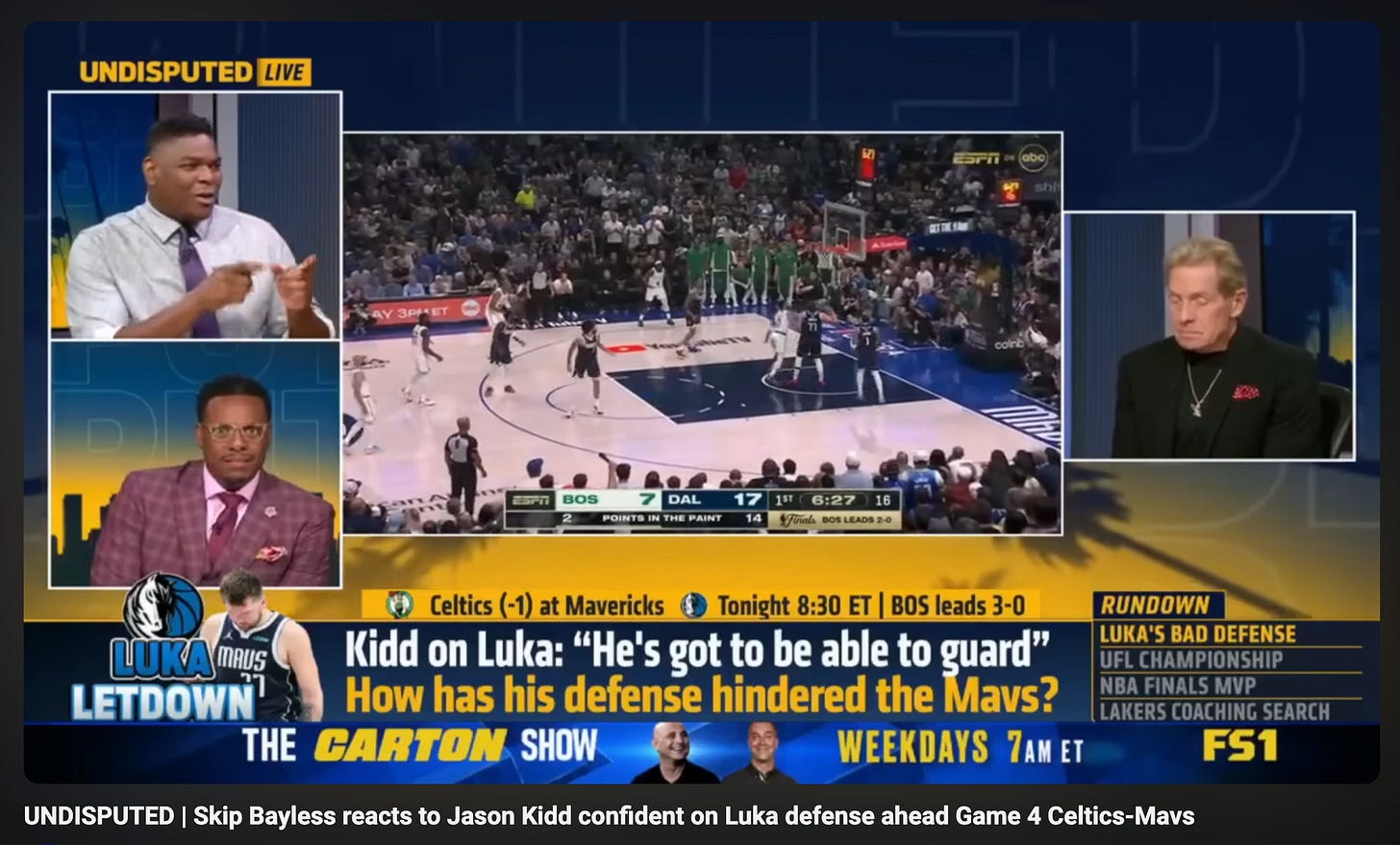
Before I go any further, I want to point out a few more examples. Current Mavericks coach Jason Kidd beat his wife, who then left him after citing “extraordinary cruelty”. Last week, Skip Bayless could not stop glazing Jason Kidd. Former Washington Wizards guard Gilbert Arenas, who is also a convicted felon (he used to bring illegal, loaded firearms into the locker room), has been on the Stephen A. Smith Show many times this year as a friend and contributor. These men, and many more like them, are celebrated and venerated by the commentary world despite the fact that they will probably go to hell. Are we really to believe that Reese, who is neither a wife-beater nor a convicted felon, is the real devil?
This is not to say that I think people who make mistakes are always irredeemable (although domestic violence is pretty close to it). I especially don’t think that outspoken players like Kyrie are terrible humans or bad for the league. I actually really admire Kyrie in a lot of ways. I own a pair of his shoes, I never skip a good Kyrie edit, and I love betting the over on him (as long as it’s no more than o22.5 pts). But that’s precisely my point.
I think it would be tremendously unfair if we expected any basketball player—male or female—to have to give up their personalities and be dry sponges to be successful. Suppressing who you are isn’t cool in general, and it’s especially not cool when media pundits force you to trade off your pocketbook and your principles. But in the same way that Kyrie should be allowed to be as successful as he is, with his extremely controversial and outspoken views, Reese should be allowed to talk shit as much as she wants. As she herself appropriately points out in response to online abuse, “I’m still a human”. That’s something every dipshit on ESPN and every troll in the comments shouldn’t forget.
Beyond the individual level, though, is the fact that the WNBA cannot be successful when everyone keeps minimizing players’ personalities. There is an extraordinarily high tolerance level for loudmouths and bullshit in the NBA, and rightfully so. That’s what makes it fun—I like that Kyrie is like a crazy uncle. I like that Scottie Barnes appears to be dumb as rocks. I especially like that KD is practicing his shooting form in the club, and is as antisocial as the rest of us. I find it hilarious that LeBron is a pathological liar. I even find LaMelo’s spoiled brat persona to be mildly enjoyable.
Maybe it goes a little too far sometimes—still not letting the Jason Kidd thing go—but this type of grace is what makes the NBA entertaining. It’s not just about the basketball, it’s about the idols too—and we only connect with them when they show us who they are as people. But that same grace isn’t being extended to the WNBA, and until it is, nothing is going to change. It’s only going to get worse as the chilling effect of Angel Reese being shit on expands, and other women feel like they’d be safer not showing the world who they are.
I’ll end with this. The above video is of WNBA legend Sue Bird, who is one of my favorite players of all time. For years, critics and investors in the W pushed her to hide who she was, stay in the closet, and just play basketball. Beyond how extraordinarily cruel that is, imagine all the young queer folks out there who would’ve loved to see themselves represented on that stage. More broadly: imagine all of the players who were full of passion for the game, and love for their identity, but had to downplay it as to avoid the scorn of folks like Stephen A., Skip Bayless, and Charles Barkley. It all shows: the W can’t small-ball its way to prominence. It won’t work, and it shouldn’t.
— SJY, 06.18.24





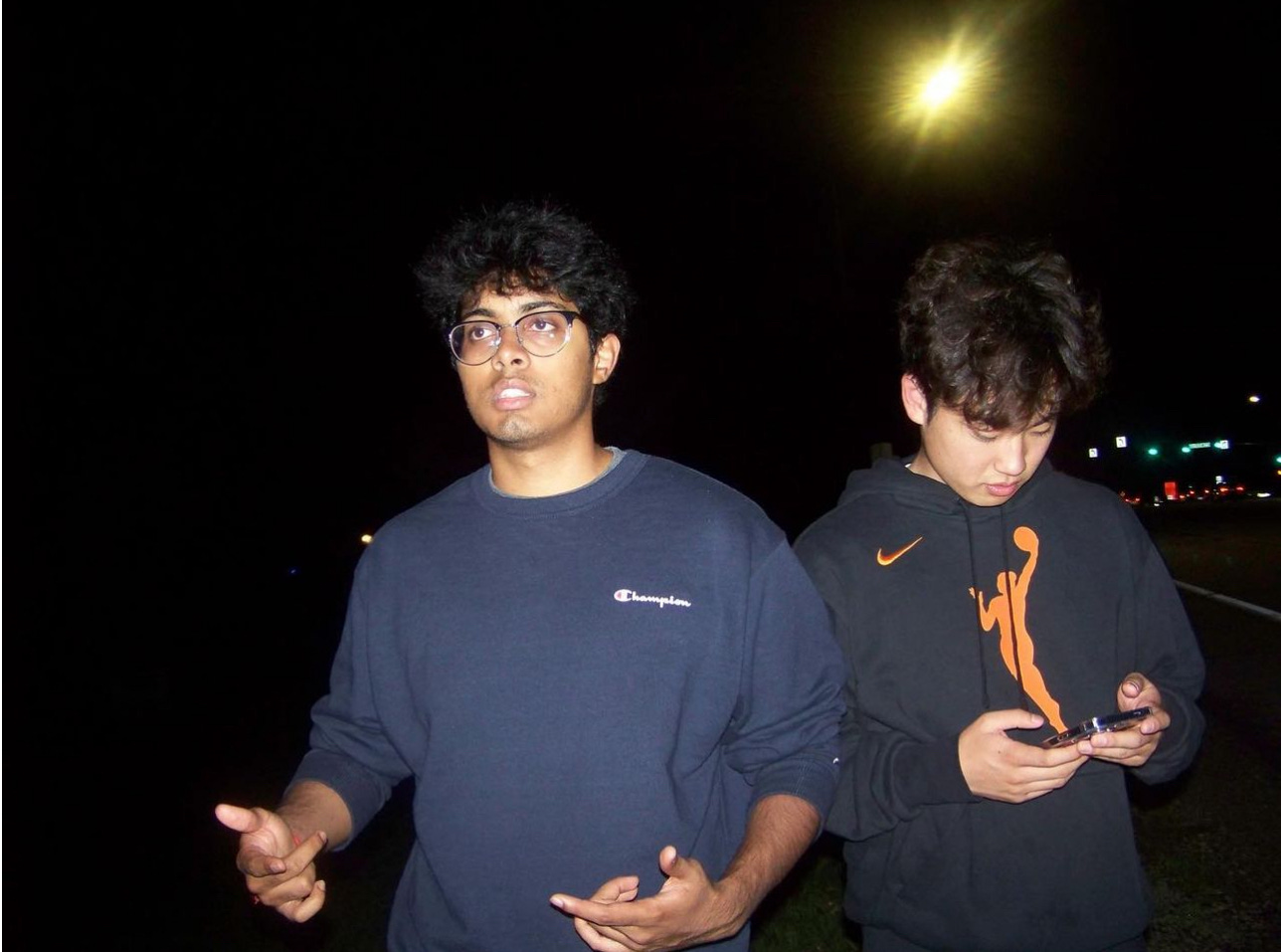
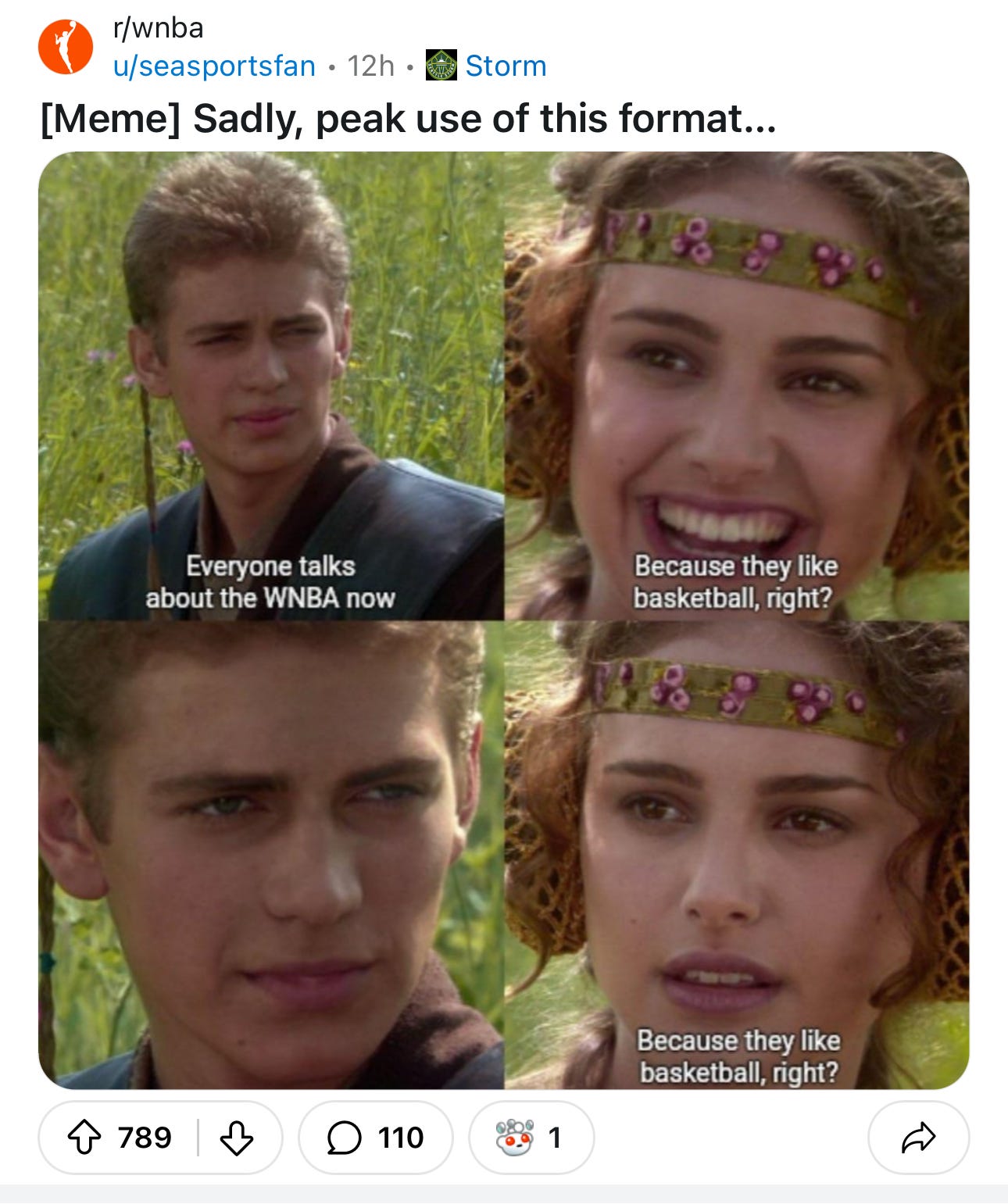
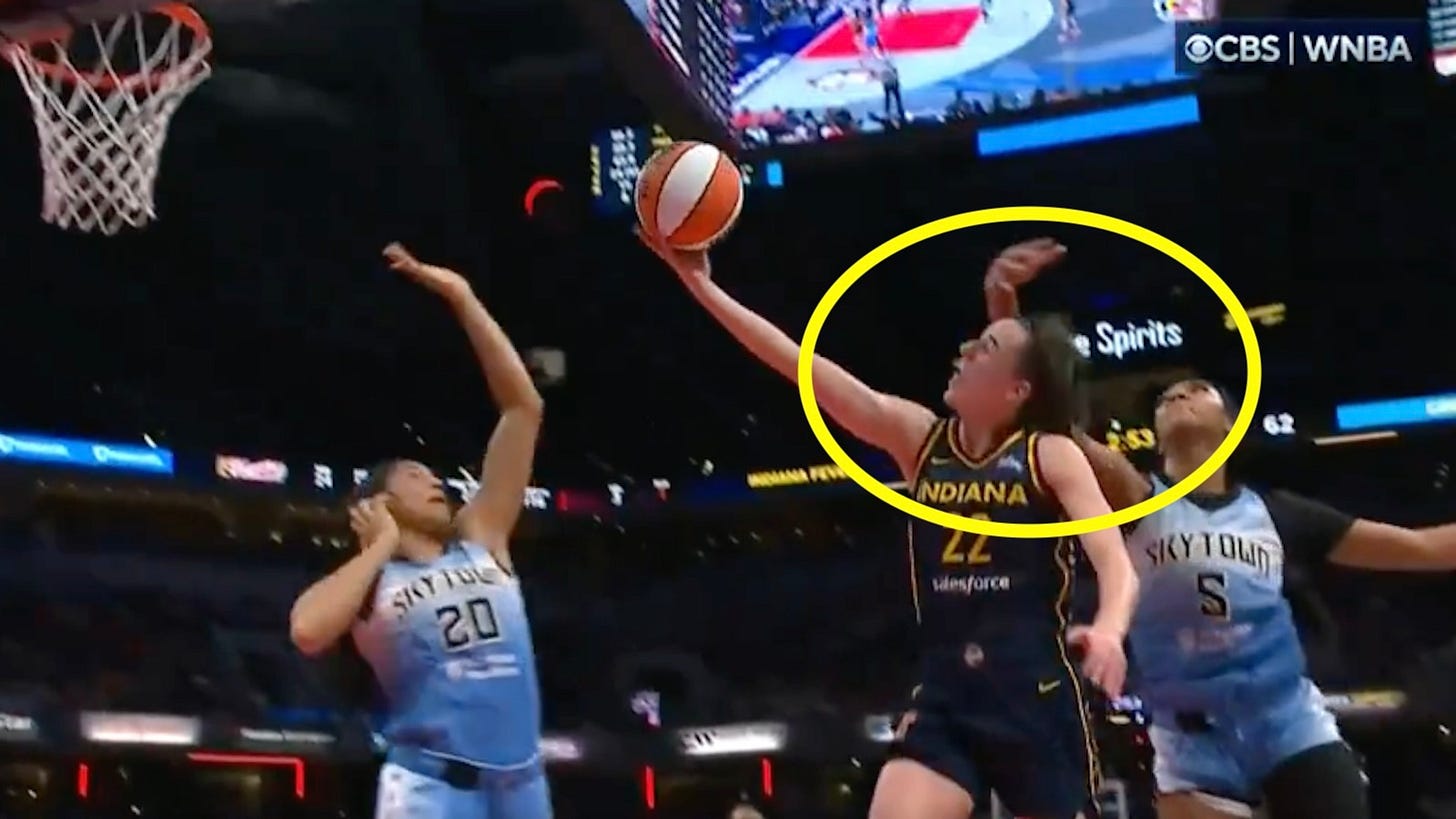
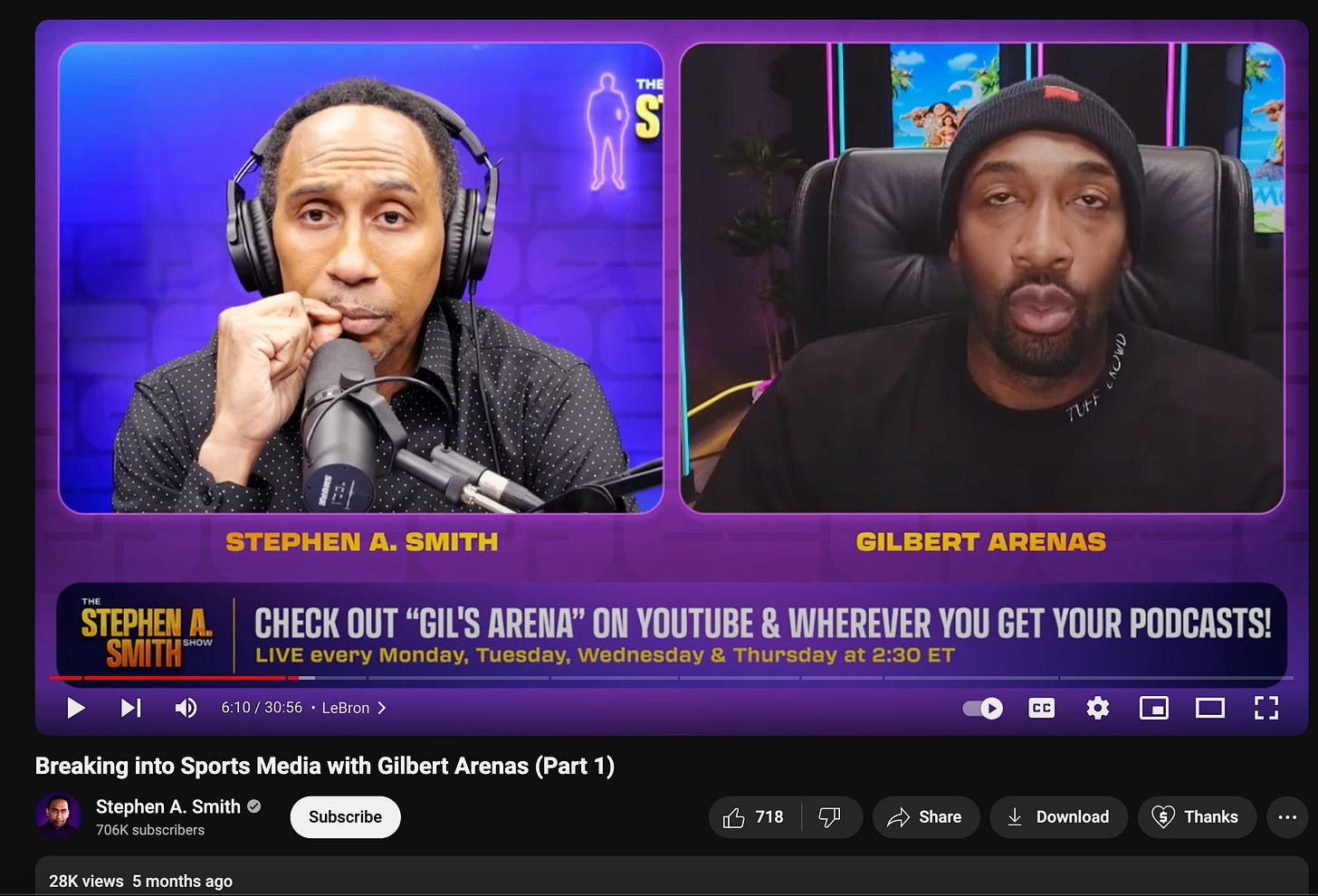
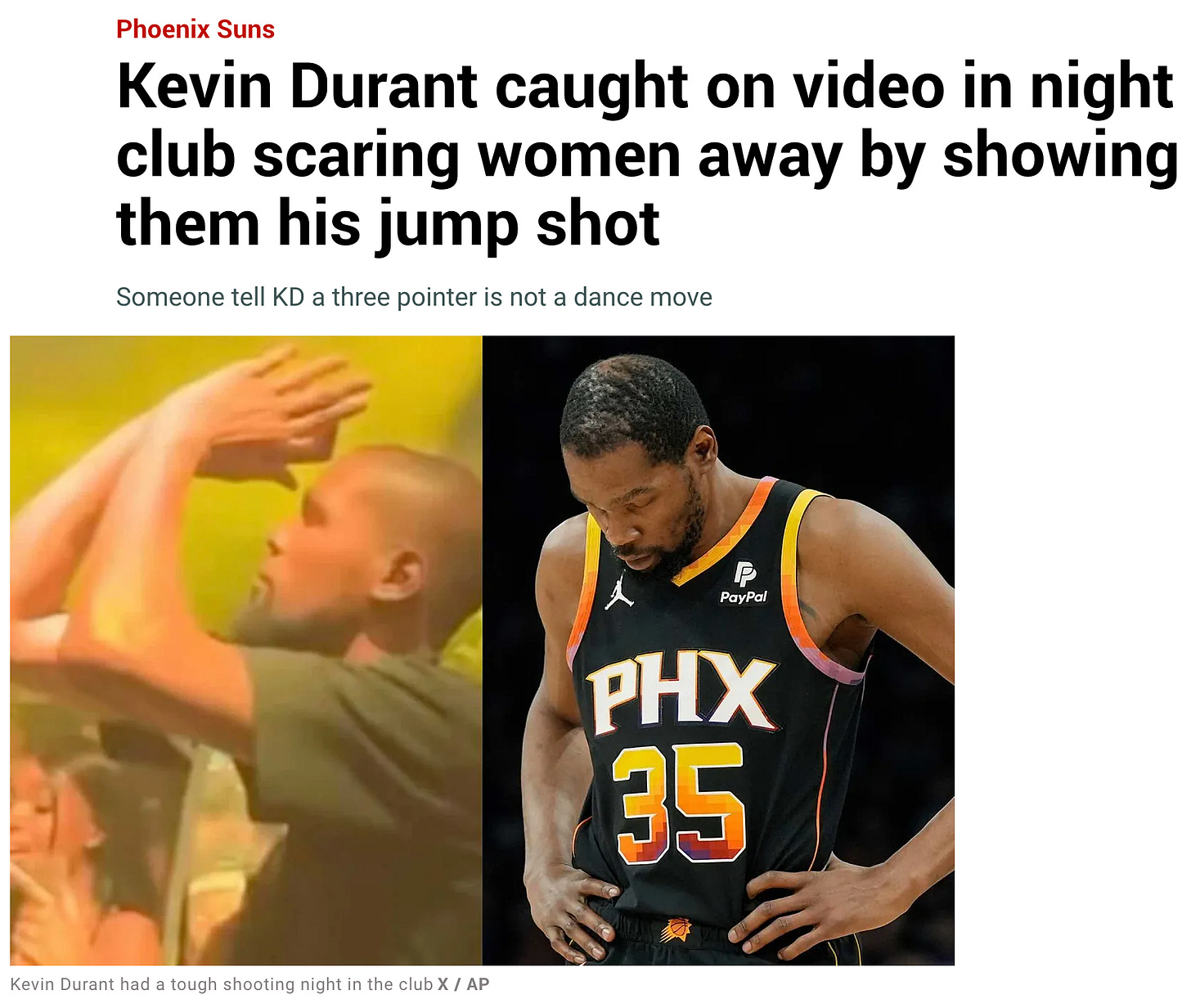
This is a great piece: the immediate backlash when Angel replicated Caitlin’s “can’t see me” celebration is a stark contrast to how Caitlin’s treated when she does the celebration herself. Also, NBA players literally taunt rivals with their own celebrations all the time (most immediate example I can think of is Scottie Barnes doing this to Mikal Bridges) and everyone thinks it’s the funniest thing!